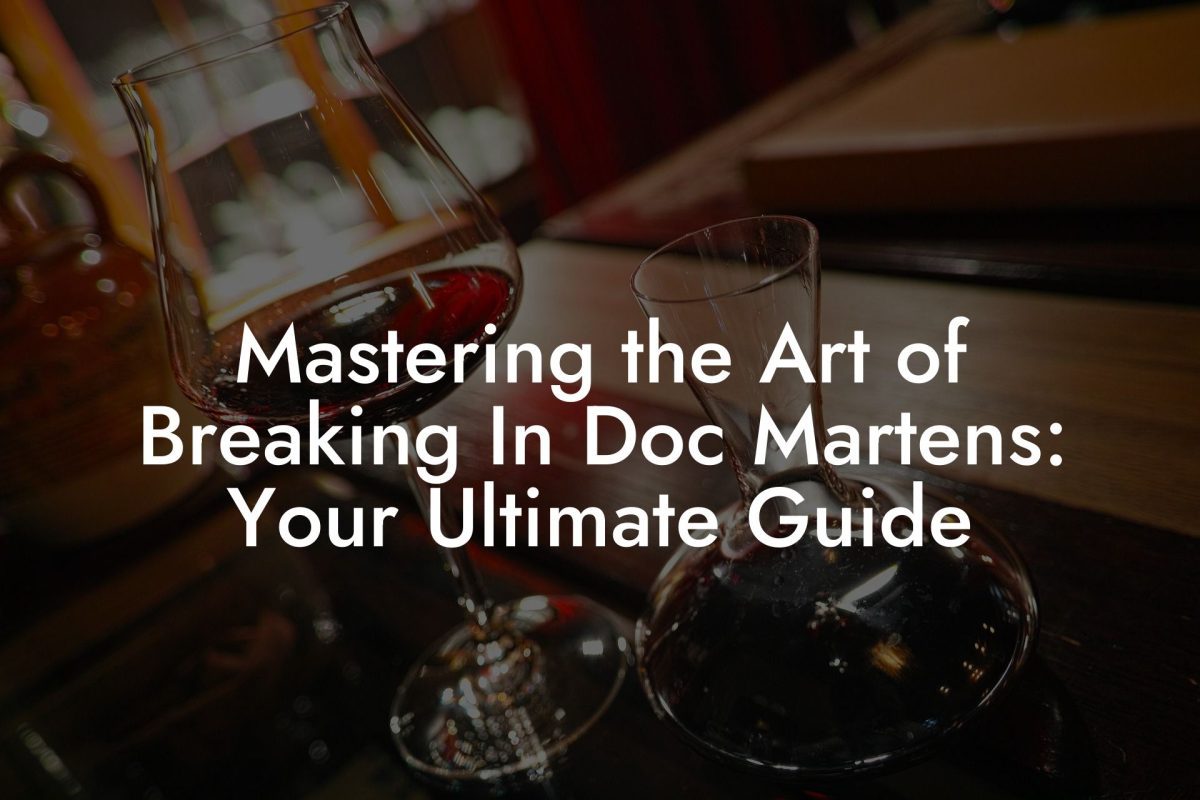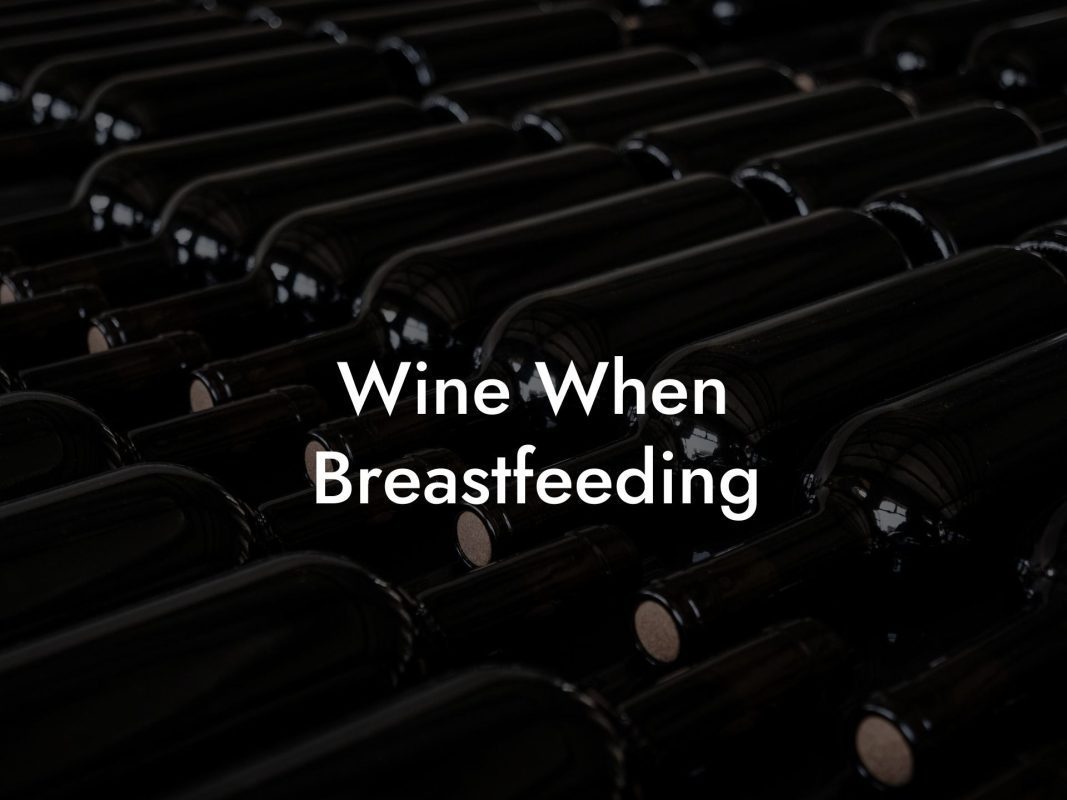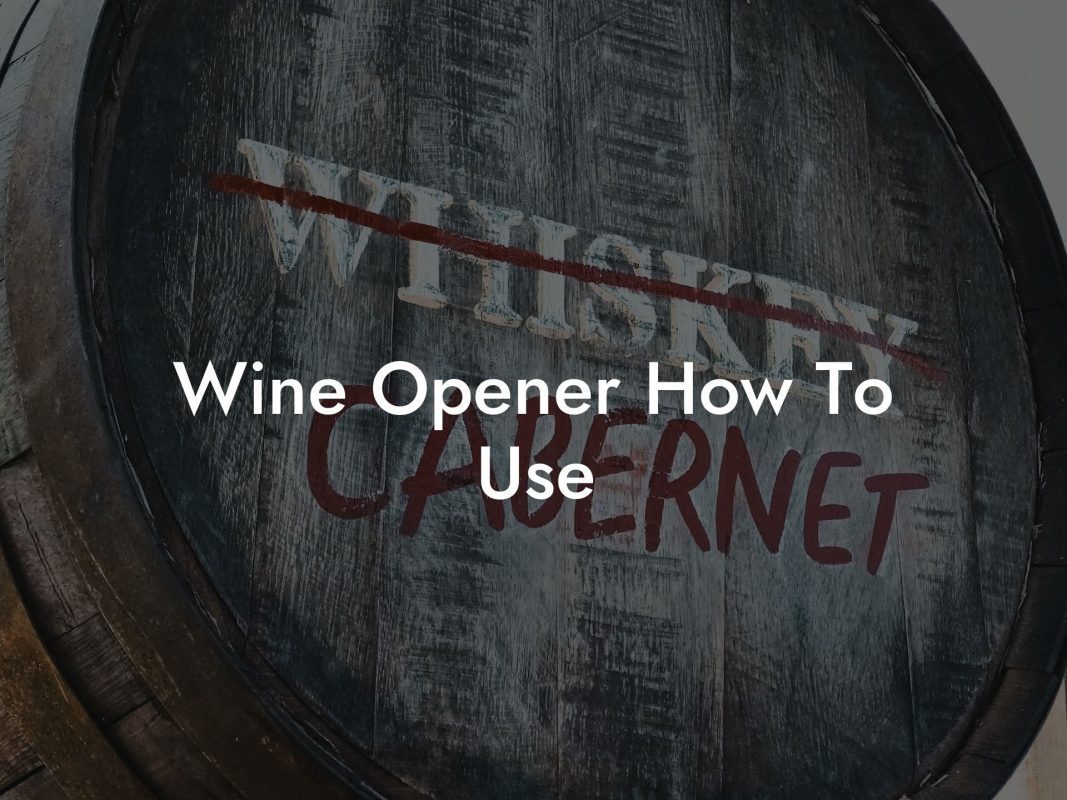Are you a wine enthusiast looking to dive deeper into the world of winemaking? Or perhaps you're an adventurous soul yearning to create your own delicious blends at home? Look no further! You've come to the right place. In this engaging article, we'll guide you through the fascinating process of turning grapes into wine, so you can impress your friends and satisfy your cravings for all things vino. So sit back, grab a glass of your favorite wine, and let's get started!
How Do You Make Grape Wine Table of Contents
The Basic Wine Making Process
At its core, making wine involves the fermentation of crushed grapes, a natural chemical reaction that turns the sugars in the fruit into alcohol and carbon dioxide. But there's more to it than that! Let's break down the winemaking process into five easy-to-follow steps:
1. Choose and Harvest Your Grapes
The first step in making wine is selecting the right grape variety. The type of grape will greatly influence the flavor, smell, and color of the final product. Some popular grape varieties for winemaking include Cabernet Sauvignon, Merlot, Chardonnay, and Pinot Noir, each offering unique taste profiles and characteristics. Once you've decided on your preferred grape variety, you'll need to harvest the grapes when they've reached peak ripeness, as the sugar content is crucial for the fermentation process.
Do You Want to Win a Free Bottle of Wine?
Don't miss out on the opportunity to win a free bottle of wine every week.
Enter our weekly prize draw today!
2. Crush the Grapes
After harvesting, you'll want to crush the grapes to release their juice and break down the skin. Traditionally, this was done by stomping the grapes with bare feet, but nowadays, many winemakers use mechanical crushers. Crushing exposes the grape juice to natural yeasts, which play a vital role in fermentation.
3. Ferment the Grape Juice
The fermentation process is where the magic really happens. Yeast converts the sugar in the grape juice into alcohol, resulting in the production of wine. You'll want to ensure that your grape juice is fermenting at the right temperature, as higher temperatures can speed up the process and affect the taste. Most red wines ferment at temperatures between 68-86F (20-30C), while whites are fermented at cooler temperatures of 50-59F (10-15C).
4. Age the Wine
Aging wine allows the flavors to develop, creating a more complex and enjoyable final product. Wine can be aged in glass, stainless steel, or, more traditionally, oak barrels. The choice of vessel can significantly impact the taste of the wine, as wood can impart additional flavors and help soften the wine's tannins. The length of time for aging will vary depending on the type of wine and your personal preference.
5. Bottle and Preserve the Wine
When your wine has reached the desired taste and maturity, it's time to bottle it! Most winemakers use cork to seal their bottles, as it provides an effective seal while still allowing the wine to "breathe." Once bottled, wine can be stored and aged further, or enjoyed immediately. Just remember to store your bottles in a cool, dark place, away from any heat or light sources.
How Do You Make Grape Wine Example:
Imagine creating a homemade Cabernet Sauvignon. You'd start by selecting high-quality Cabernet Sauvignon grapes, harvesting them at just the right moment for optimal ripeness. After crushing the grapes, you'd allow the juice to ferment at roughly 77F (25C) under careful monitoring. Once the fermentation process is complete, you'd transfer the wine to oak barrels to age for anywhere between one to two years. Finally, you'd bottle your wine and either store it for further aging or pour a glass and enjoy the fruits of your labor!
Congratulations, you've just taken a whirlwind tour through the world of grape winemaking! Whether it’s an exciting hobby or a new passion, making grape wine is a rewarding and enjoyable endeavor. If you've enjoyed learning about the ins and outs of grape winemaking, be sure to share this article with your fellow wine lovers and explore more guides on Black Wine Club. Remember, great wine is not just about sipping and savoring, but also about discovering, learning, and enjoying the journey — cheers to that!
Do You Want to Win a Free Bottle of Wine?
Don't miss out on the opportunity to win a free bottle of wine every week.
Enter our weekly prize draw today!












